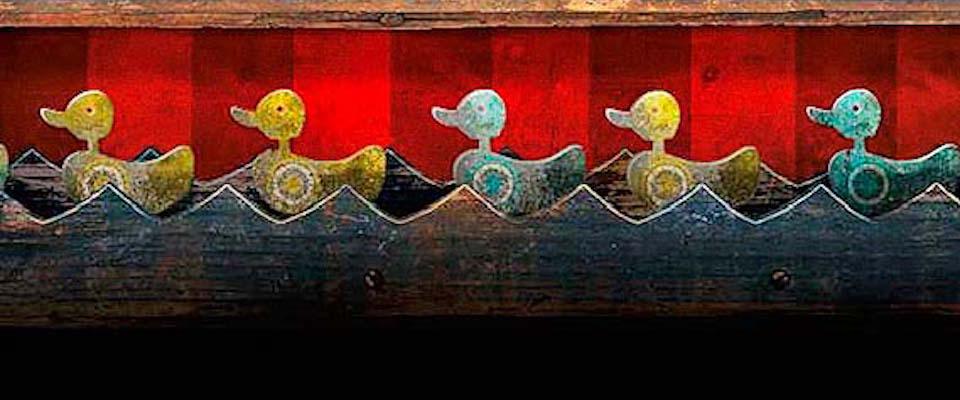Fortune favors the prepared mind? Well, yeah. But it can also favor the wholly unprepared, discursive, wool-gathering mind. And it can do so in a blithe, even absurd fashion. I speak from direct experience.
The year: 1990. Newspapers were in their pre-Götterdämmerung era, before Craigslist made classified and display advertising into quaint anachronisms. Before then, circulation and revenues were climbing smartly at the large metros; newspaper guild contracts were relatively strong. Journalism still seemed like a reasonable career choice for someone who could string two sentences together and couldn’t do higher math.
Which is why I found myself in the office of the publisher of the San Francisco Chronicle one spring morning. I could string sentences together. I couldn’t do higher math.
I wanted one of those staff reporting jobs.
Candidly, I’m not sure I deserved one. Anyone calling my career path “checkered” at that point was being charitable. I certainly hadn’t followed the usual route considered de rigueur for serious journalists: a master’s degree from a top J-school, followed by prestigious internships. It was lucky I even had a bachelor’s degree. After I graduated from junior college, my older brother and I discussed negotiating a loan for an albacore boat. It was pathetic that commercial fishing seemed my best option, given my chronic seasickness.
But I had also applied for a regents’ scholarship to the University of California at Santa Barbara, which was based largely on the merits of a personal essay; the award miraculously came through. I supplemented the generous stipend with a side business—not dope dealing, but the almost equally disreputable trade of term paper writing. Most of my fellow undergrads were beautiful, wealthy, amiable young folk who thought, with some justification, that their time might better be spent surfing and partying than extruding 1,000-word essays on “Bartleby, the Scrivener.” I was good friends with several of them, and when they offered me generous payment for low-level academic writing, I was happy to oblige. Word soon spread, and I ultimately ran a highly remunerative shop out of my grubby studio apartment in Isla Vista.

That enterprise was my journalism internship at The New York Times; my Iowa Writer’s Workshop. And it served me well enough. By the time I found myself blinking in the crepuscular gloom of the Chronicle’s executive offices, I had my share of freelance credits and even a book to my name. Still, Esquire and The New Yorker hadn’t called with offers of a staff position.
On impulse, I had quit a well-paid, even cushy, gig as a writer and media contact at the Robert Mondavi Winery; for some reason, the lush and cultured life of the Napa Valley was not for me. This point was made clear to me on several occasions by Robert Mondavi himself, who, while finding no technical fault with my work, astutely concluded I was constitutionally unsuited for the promotion of “gracious living” (one of his favorite terms). He properly determined that, for me, “living” would somehow always remain a primitive, even desperate, proposition. He could tell this, I think, by everything from my shabby wardrobe to my Dumb and Dumber haircut, to the way I hunched over my food during the lavish dinners held in the winery’s Vineyard Room, like a convict guarding his pudding cup.
At one point, I had a separate office and a secretary. She thought it droll that it was my habit to return after an extended lunch with a flack, marketing executive, or writer and lock the door to my office, curl up like a dog under my desk, and sleep for an hour. She was, however, alone in finding it amusing.
I could dig fire line, use a chainsaw, drink wine, and had a certain idiot-savant facility for writing acceptable copy on deadline.
Other than my tenure at Mondavi, the only position of note on my resume was an extended stint as a seasonal wildfire fighter for the U.S. Forest Service. My skill set was thus extremely limited. I could dig fire line, use a chainsaw, drink wine, and had a certain idiot-savant facility for writing acceptable copy on deadline.
So I was desperate. I was on the cusp of middle age, and my prospects for a full-time position with benefits and a reasonable salary were slim to none. That I was in the publisher’s suite at all was due to a fluke—or rather, the good offices of a friend. The Chronicle had a weekly outdoors section staffed by an assigning editor, a hunting-and-fishing columnist and writer, and a feature writer who covered everything related to the outdoors other than “hook-and-bullet” subjects. Paul McHugh, the generalist reporter, told me that the hunting-and-fishing writer was retiring, and the paper was actively seeking a replacement. One thing, though: The choice would be made by the publisher, Richard Thieriot.
Normally, hires were left to department editors and then rubber-stamped by the HR department. But there were two exceptions to this general rule: business reporters and the hook-and-bullet guy. Thieriot considered himself a businessman first and foremost, so the business section was of paramount concern to him. But the hunting-and-fishing beat went beyond mere concern. Thieriot was an avid (obsessive is not too strong a word) duck hunter, and he wanted the waterfowling ethos properly represented in the outdoors section.
I had hunted and fished all my life. I loved sitting in the mud, waiting for mallards or pintails to cup their wings over my decoys. I could chew the fat with duck guides and hunters all day, and I could write about what they said. I negotiated the pro forma interview with the section editor easily enough, and was reasonably confident I would charm the publisher.
But Thieriot was anything but charmed. His questions were perfunctory and he seemed bored, sometimes irritated, by my responses. (I later learned from McHugh, who didn’t want to hex me prior to my interview, that Thieriot had already met with the outdoors reporter for the Stockton Record and been favorably impressed.)
Just as I was giving up hope, I noticed something on Thieriot’s vast, glossy expanse of desk: a copy of the latest issue of Audubon magazine; an issue that happened to have one of my articles. It was nothing earthshaking, merely a short, evocative essay on farm ponds as utilitarian reservoirs that also served as refuges for both wildlife and world-weary humans (and were good places to hunt ducks). I pointed at the magazine and mentioned that it contained my piece. Thieriot’s demeanor immediately changed.
“You wrote that?” he said, brightening. “That was a fantastic article!” It turned out that the piece appealed to him because it championed private conservation initiatives. A good capitalist, he favored such enterprise over direct government intrusion in environmental matters.
The remainder of the interview proceeded amicably, and I found out a few days later that I had the job. Which is how I came to spend two blissful years hunting and fishing and getting paid for it. And when the outdoors section folded, I jumped to “news side,” where I covered everything from ax murders to water policy, wildfires in California to the Moslem insurgency in the Philippines. It was interesting work and I never tired of it.




















